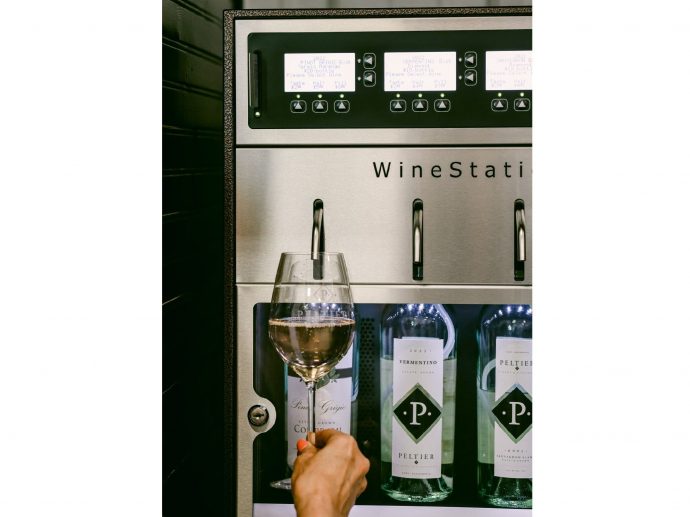Categories more
- Adventures (17)
- Arts / Collectables (15)
- Automotive (37)
- Aviation (11)
- Bath, Body, & Health (77)
- Children (6)
- Cigars / Spirits (32)
- Cuisine (16)
- Design/Architecture (22)
- Electronics (13)
- Entertainment (4)
- Event Planning (5)
- Fashion (46)
- Finance (9)
- Gifts / Misc (6)
- Home Decor (45)
- Jewelry (41)
- Pets (3)
- Philanthropy (1)
- Real Estate (16)
- Services (23)
- Sports / Golf (14)
- Vacation / Travel (60)
- Watches / Pens (15)
- Wines / Vines (24)
- Yachting / Boating (17)
Published
07/16/2023 by Peltier Winery & VineyardsPeltier Winery & Vineyards in Acampo, California, offers a curated wine tasting experience unlike any other in the wine growing region. A state-of-the-art, intelligent, wine dispensing and preservation system, WineStation gives guests the freedom to explore wine according to their palate preferences and doesn't waste a drop.
"We implemented the WineStation system because we want you to drink what you like," says Gayla Schatz, Co-Proprietor of Peltier Winery. "At the same time, we want to encourage curiosity and give guests the opportunity to try some lesser known varietals we produce like Vermentino and Teroldego."
Here's how a tasting works: with a hotel-like key card, guests can choose a taste (1oz), half glass (2.5oz) or full glass (5oz) from 24 different wines, all Estate grown and produced by Peltier. Guests can dispense the wine themselves, or, a tasting room host can help guide guest wine selections and bring them to the table for a more traditional experience. Tastings are charged by the ounce and range from $2.50/oz for their fresh white wines and up to $7/oz for their 36 month barrel aged, reserve reds.
The dispensing system is also part of the winery's sustainability practice. Wine is preserved for up to 60 days in the system and kept safe from oxidation so each sip tastes like a fresh bottle. "Our wine waste has been completely eliminated. Previously, if we opened bottles on a Monday and it was a slow week, we'd have to dump them by the time the busy weekends came around because the wines were no longer showing their best. Now, we can offer all of our wines for tasting, every day, and know that they taste like a new bottle every time" says Schatz.
Peltier Winery & Vineyards has always been driven by the notion that to be a sustainable business, they must be ever-evolving. Always be searching for a new, better way of doing things beyond just the tasting room. They were among the first in the area to certify 100% of their vineyards sustainable by the Lodi Rules program and one of the first in the state to install a worm farm to treat the winery's process water. As 4th generation farmers who built the winery in 2002, the Schatz family is about producing high quality grapes from their estate vineyards, over-delivering on quality wine for the price point and continuously improving the process from grape to glass.















